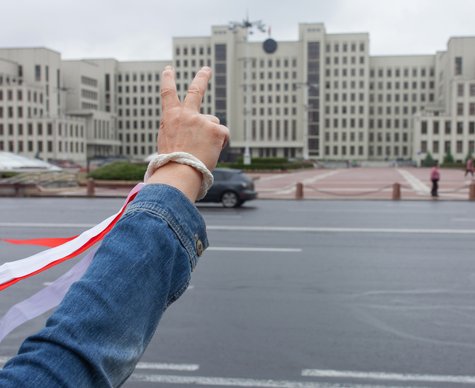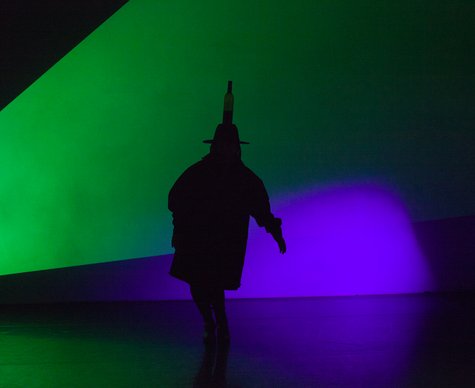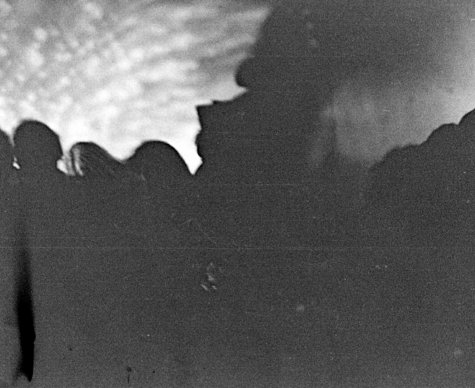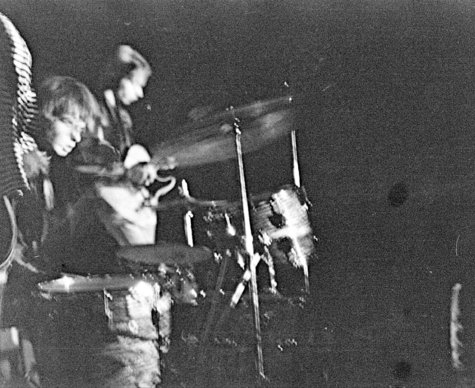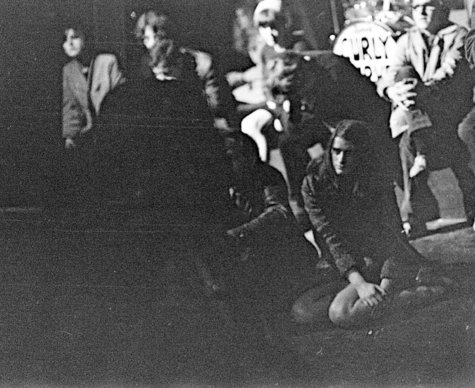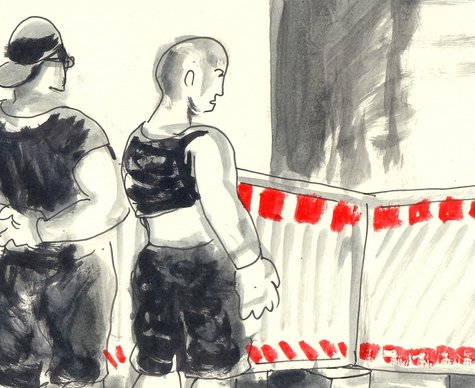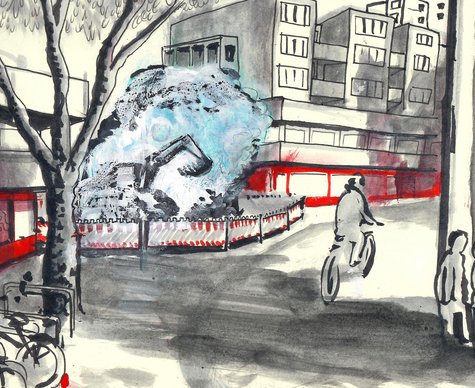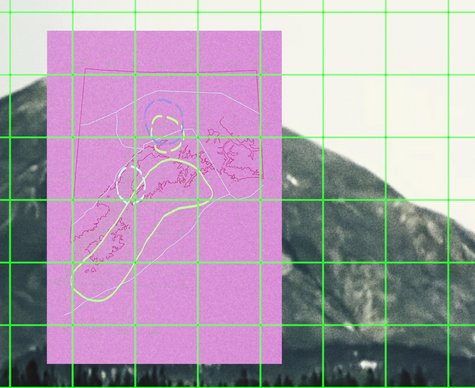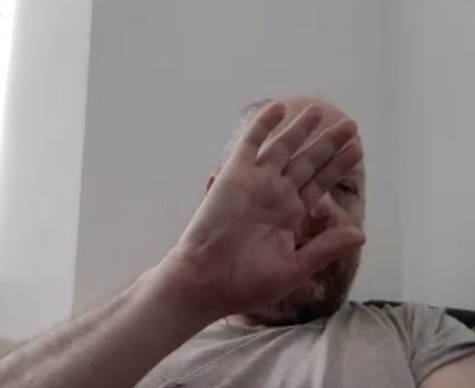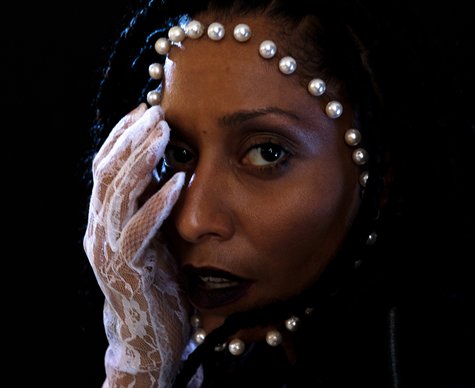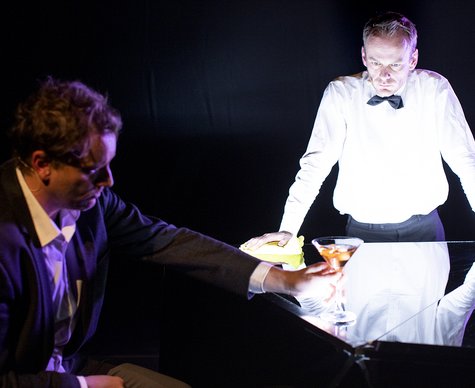Choreography: Laurent Chétouane / Dance: Léonard Engel / Music: Stefan Hadjiev, Azadeh Maghsoodi, Nora Romanoff-Schwarzenberg, Artiom Shishkov / Costume: Sanna Dembowski / Lighting: Philippe Gladieux / Musical Consultant: Johann Günther / Dramaturgical advice: Mikael Marklund, Marten Weise / Production: Christine Kammer, Hendrik Unger
Laurent Chétouane
Op.131 : End/Dance
- Dance
In his last string quartet op. 131, Beethoven appears to bid farewell to his entire work. All musical forms he had created until then are disassembled into autonomous parts. At the end of the piece they can no longer be held together by any compositional logic. What is left are remnants – ruins of music – which once were held to be a model of western thinking. With Beethoven, that which might appear sad sounds extremely lively and spirited, for he knows that the power of innovation can only be found in interaction with the rhythm given by the death drive. Perhaps this is the issue nowadays, too: to find the power to accept the end of our way of living, even induce it ourselves so that new things may develop after the farewell.
In “Op. 131: End/Dance” the dancer Léonard Engel investigates this in a confrontation with Beethoven’s demeanour, in order to find a possible beginning in the end of dance: alone, but supported and inspired by the music played live, he transforms his subjective delight in disassembly into a choreographic process. This process presents the entire body as a free compulsive remnant. Without meaning: passionate thinking with the body which eventually only allows the beauty of the gesture. Finally. Infinite.
Cast
Dates
Credits
Production: Beethoven GbR. Co-production: HAU Hebbel am Ufer, Aarhus Teater, Kampnagel Hamburg. Funded by the basic funding of Berlin Senate Department for Culture and Europe. Supported by: NATIONALES PERFORMANCE NETZ Coproduction Fund for Dance, which is funded by the Federal Government Commissioner for Culture and the Media. With the friendly support of Dock11/Eden*****Berlin.
Location
HAU1
Stresemannstr. 29, 10963 BerlinThere are two marked parking spots in front of the building. Access to the Parkett by means of a separate entrance with lift when necessary. Barrier-free restroom facilities are available. Tickets for wheelchair users and accompanying persons can be booked via the ticketing system. If you need any help, please contact our Ticketing & Service team at +49 (0)30 259004-27 or send us an email at
tickets@hebbel-am-ufer.de.
![[Translate to EN:]](/fileadmin/Hau/_processed_/b/6/csm_Unknown_Eva_W%C3%BCrdinger_b19bedb2ed.jpeg)
![[Translate to EN:]](/fileadmin/_processed_/e/9/csm_Unknown-1_Eva_W%C3%BCrdinger_b16c4203f6.jpeg)
![[Translate to EN:]](/fileadmin/Hau/_processed_/5/e/csm_Senatsverwaltung_fuer_Kultur_und_Europa_Logo_c36ab5bcf7.png)
![[Translate to EN:]](/fileadmin/Hau/_processed_/d/8/csm_bkm_dtp_grau_de_5ed5e4b2ec.jpg)
![[Translate to EN:]](/fileadmin/Hau/_processed_/b/6/csm_npn_schwarz_c8c6d866dc.jpg)


















